DEI Perspective
SEPTEMBER, 2023 HISPANIC HERITAGE MONTH
September 15 - October 15, 2023
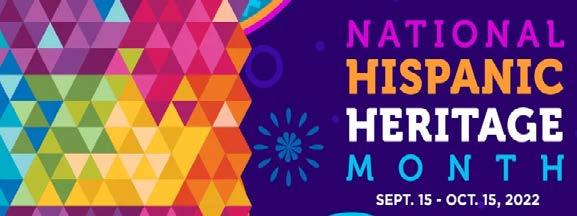
“Diversity is not about how we differ. Diversity is about embracing one another’s uniqueness.” – Ola Joseph
“During National Hispanic Heritage Month, we recognize the contributions made and the important presence of Hispanic and Latino Americans to the United States and celebrate their culture and heritage.” - Sheila

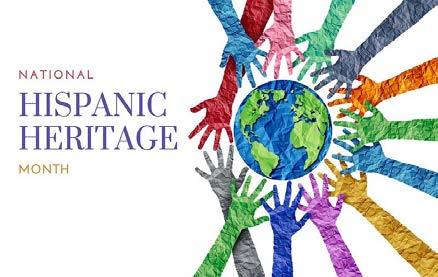 Jackson Lee
Jackson Lee
Sources: Census History Wikipedia
Hispanic Heritage Month
The observation started in 1968 as Hispanic Heritage Week under President Lyndon Johnson and was expanded by President Ronald Reagan in 1988 to cover a 30-day period starting on September 15 and ending on October 15. It was enacted into law on August 17, 1988, on the approval of Public Law 100-402.
“Each year, Americans observe National Hispanic Heritage Month from September 15 to October 15, by celebrating the histories, cultures and contributions of American citizens whose ancestors came from Spain, Mexico, the Caribbean and Central and South America.
“The observation started in 1968 as Hispanic Heritage Week under President Lyndon Johnson and was expanded by President Ronald Reagan in 1988 to cover a 30-day period starting on September 15 and ending on October 15. It was enacted into law on August 17, 1988, on the approval of Public Law 100-402.
“The day of September 15 is significant because it is the anniversary of independence for Latin American countries Costa Rica, El Salvador, Guatemala, Honduras and Nicaragua. In addition, Mexico and Chile celebrate their independence days on September 16 and September18, respectively. Also, Columbus Day or Día de la Raza, which is October 12, falls within this 30 day period.”
From The American Presidency Project: Proclamation 10446—National Hispanic Heritage Month, 2022: “Hispanic heritage holds an indelible place in the heart and soul of our Nation, and National Hispanic Heritage Month reminds us that the American identity is a fabric of diverse traditions and stories woven together. Since the beginning, our country has drawn strength and insights from Hispanic writers, scientists, soldiers, doctors, entrepreneurs, academics, and leaders in labor and government. Our culture has been enriched by the rhythms, art, literature, and creativity of Hispanic peoples. And our deepest values have been informed by the love of family and faith that is at the core of so many Hispanic communities. All of these contributions help us realize the promise of America for all Americans.”
The term Hispanic or Latino (or the more recent term Latinx) refers to a person’s culture or origin—regardless of race. On the 2020 Census form, people were counted as Hispanic or Latino or Spanish if they could identify as having Mexican, Mexican American, Chicano, Puerto Rican, Cuban, or “another Hispanic, Latino, or Spanish origin.”
Hispanic History Milestones
There is far too much history to try to include everything about the milestones impacting the Hispanic community. We have presented a vast summary below over a few centuries. I would encourage you to take a look at History.com to gain more insight and read the full stories.
Here are a few milestones called out:
• Supreme Court Prohibits Segregation for Mexican-American Students.

• Civil Rights Act of 1964.
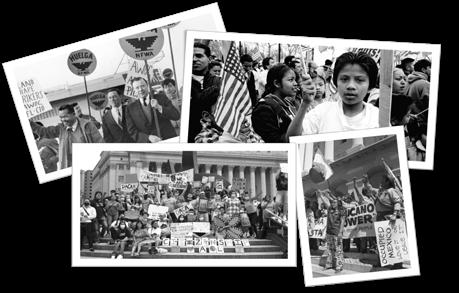
• Cesar Chavez Leads Delano Grape Strike.
• Mariel Boatlift.
• Multiple Firsts in White House Cabinets.
• NAFTA, Prop 187.
• Sonia Sotomayor Joints US Supreme Court.
• DAPA, DACA Rulings.
4 5 DIVERSITY, EQUITY, AND INCLUSION DIVERSITY, EQUITY, AND INCLUSION
American Hispanic/Latino history is rich, diverse and long,

with immigrants, refugees and Spanish-speaking or Indigenous people living in the United States since long before the nation was established.
And, bringing with them traditions and culture from Mexico, Spain, Cuba, Puerto Rico, the Dominican Republic and other Latin American and Iberian nations, America’s Hispanic population continues to grow, reaching a record 62.5 million in 2020, or 18.7 percent of the U.S. population.
From early Spanish colonialism to civil and worker rights laws to famous firsts to recent Supreme Court decisions on immigration, here’s a timeline of notable events in U.S. Hispanic and Latino history.
May 1718
Spanish priest Father Antonio Olivares founds the Mission San Antonio de Valero, better known as The Alamo, the first mission in San Antonio, Texas. Formed to convert Native Americans to Christianity, it became a fort and site of rebellion in 1835.
March 1836
"Remember the Alamo!" becomes a battle cry for the Texas militia, which eventually wins independence. In 1845, Texas is annexed by the United States.
March 1917
President Wilson signs the Jones-Shafroth Act, granting U.S. citizenship to Puerto Ricans and creating a bicameral legislature in the island territory.
April, 1947
Supreme Court Prohibits Segregation for MexicanAmerican Students. The 9th Circuit Court of Appeals makes a landmark ruling prohibiting segregation in California public schools
March 2011
A report from the U.S. Census Bureau shows that more than half the increase of the total U.S. population between 2000 and 2010 was due to the 43 percent growth of the Hispanic population
Apr 1513
Ponce de Leon
Landed along the Florida coast, claiming the territory for the Spanish Crown
Sept. 30, 1822
Joseph Marion Hernandez becomes the first Hispanic member of Congress, serving during the 17th Congress until March 3, 1823. (Florida became a territory in 1822.)
A prominent plantation owner born in St. Augustine, Spanish Florida, Hernandez fought first for Spain to stop U.S. encroachment into the state, but later for the United States, eventually running unopposed and serving as Florida’s first territorial delegate. He later served in the U.S. military during the Second Seminole War and was mayor of St. Augustine in 1848.
July 9, 1868
The Fourteenth Amendment to the U.S. Constitution is adopted. Section 1 states that "all persons born or naturalized in the United States, and subject to the jurisdiction thereof, are citizens of the United States and of the State wherein they reside."
Dec. 7, 1928
Octaviano Ambrosio Larrazolo of New Mexico is sworn in as the country's first Hispanic senator.
Aug 2009
Sonia Sotomayor is sworn in by Chief Justice John Roberts as the first Hispanic Supreme Court justice and the third woman to serve on the court.
June 18, 2020
In a 5-4 ruling, the U.S. Supreme Court blocks an attempt by the Trump administration to end the Deferred Action for Childhood Arrivals (DACA) program
6 7 DIVERSITY, EQUITY, AND INCLUSION DIVERSITY, EQUITY, AND INCLUSION
Notable Hispanic Leaders...
“The beauty of anti-racism is that you don’t have to pretend to be free of racism to be antiracist. Anti-racism is the commitment to fight racism wherever you find it, including in yourself. And it’s the only way forward.” –
Cesar Chavez
1927 - 1993
Cesar Chavez was an American labor leader and civil rights activist. Along with Dolores Huerta, he co-founded the National Farm Workers Association (NFWA), which later merged with the Agricultural Workers Organizing Committee (AWOC) to become the United Farm Workers (UFW) labor union.
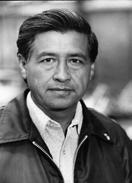
Delores Huerta
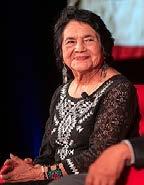
1930 - Present
Is an American labor leader and civil rights activist who, with Cesar Chavez, is a co-founder of the United Farmworkers Association, which later merged with the Agricultural Workers Organizing Committee to become the United Farm Workers (UFW). Huerta helped organize the Delano grape strike in 1965 in California and was the lead negotiator in the workers’ contract that was created after the strike.
Sylvia Rivera

1951- 2002
Sylvia Rivera was an American gay liberation and transgender rights activist who was also a noted community worker in New York. Rivera, who identified as a drag queen for most of her life and later as a transgender person, and participated in demonstrations with the Gay Liberation Front. With close friend Marsha P. Johnson, Rivera co-founded the Street Transvestite Action Revolutionaries (STAR), a group dedicated to helping homeless young drag queens, gay youth, and trans women.
Sonia Sotomayor
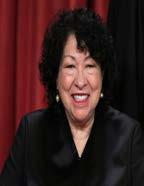
1954 - Present
Sonia Sotomayor is an American lawyer and jurist who serves as an associate justice of the Supreme Court of the United States. She was nominated by President Barack Obama on May 26, 2009, and has served since August 8, 2009. She is the third woman, first woman of color, the first Hispanic, and first Latina to serve on the Supreme Court.
Roberto Clemente
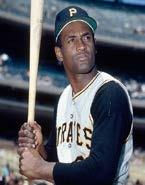
1934 - 1972
A Puerto Rican professional baseball player who played 18 seasons in Major League Baseball (MLB) for the Pittsburgh Pirates, primarily as a right fielder. After his early and sudden death, the National Baseball Hall of Fame changed its rules so that a player who has been dead for at least six months will be eligible for entry. In 1973 Clemente was posthumously inducted, becoming the first Caribbean and the first Latin-American player to be honored in the Hall of Fame.
Lin-Manuel Miranda
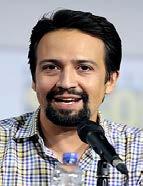
1980 - Present
An American songwriter, actor, filmmaker and playwright. He is known for creating the Broadway musicals In the Heights (2005) and Hamilton (2015), and the soundtracks for the animated films Moana (2016), Vivo, and Encanto (both 2021). His numerous accolades include three Tony Awards, three Emmy Awards, five Grammy Awards, two Laurence Olivier Awards, an Annie Award, a MacArthur Fellowship Award, a Kennedy Center Honor, and a Pulitzer Prize.
Ijoema Oluo
8 9 DIVERSITY, EQUITY, AND INCLUSION DIVERSITY, EQUITY, AND INCLUSION
Notable Inventors & Inventions...
Guillermo González
Camarena
1917 - 1965
Guillermo Gonzalez Camarena as a Mexican electrical engineer who was the inventor of a color-wheel type of color television. A field-sequential color television system similar to his Tricolor system was used in NASA’s Voyager mission in 1979, to take pictures and video of Jupiter.[1]
There was a Mexican science research and technology group created La Funck Guillermo González Camarena or The Guillermo González Camarena Foundation in 1995 that was beneficial to creative and talented inventors in Mexico.
Arias Suárez
1923 - 2001
A Chilean engineer and scientist, known for his contributions in the fields of soil mechanics, earthquake engineering and seismology.
In 1952 he proposed theoretical bases to apply the general theory of vibrations in the anti-seismic structural engineering, for structures with various degrees of freedom.
In 1954 Arias became the director of Chile’s first nuclear physics laboratory, built around a CockroftWalton multiplier, an accelerator for ionized particles. He was recognized in the field of seismology for conceiving Instrumental Seismic Intensity, also called Arias Intensity (IA), first released in 1970.
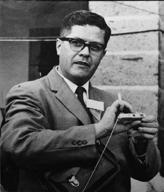
Luis von Ahn
1978 - Present
Luis von Ahn, is a Guatemalan entrepreneur and a consulting professor in the Computer Science Department at Carnegie Mellon University in Pittsburgh, Pennsylvania.

He is known as one of the pioneers of crowdsourcing. He is the founder of the company reCAPTCHA, which was sold to Google in 2009,[7] and the co-founder and CEO of Duolingo.
Julio Palmaz
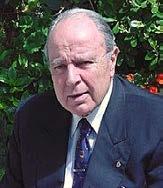
1945 - Present
A doctor of vascular radiology at University of Texas Health Science Center at San Antonio. He studied at the National University of La Plata in Argentina, earning his medical degree in 1971.
He then practiced vascular radiology at the San Martin University Hospital in La Plata before moving to the University of Texas Health and Science Center at San Antonio. He is known for inventing the balloonexpandable stent, for which he received a patent filed in 1985.

Luis E. Miramontes
1925- 2004
The scientific contributions of Luis Miramontes are extensive, including numerous publications and nearly 40 national and international patents in different areas such as organic chemistry, pharmaceutical chemistry, petrochemistry and atmospheric chemistry and polluting agents. Among his multiple contributions to world science is the synthesis on October 15, 1951, when Miramontes was only 26 years old, of norethisterone (norethindrone), that was to become the progestin used in one of the first three oral contraceptives.
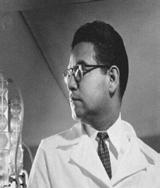
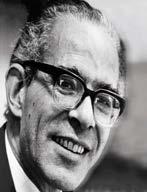
Domingo Liotta
1924 - 2002
Domingo Liotta was an Argentine surgeon and pioneer of heart surgery who created multiple cardiac prostheses, including the first total artificial heart used in a human being. Liotta was a member of medical societies around the world. He owned 12 patents in the USA, Argentina and France. He was the author of hundreds of scientific publications and scientific books, including medical humanism books in English and Spanish.
10 11 DIVERSITY, EQUITY, AND
DIVERSITY, EQUITY, AND INCLUSION
“You are not lucky to be here. The world needs your perspective. They are lucky to have you.” — Antonio Tijerino, President & CEO of the Hispanic Heritage Foundation
INCLUSION
Books, Movies & More...

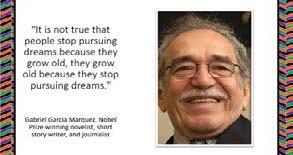
What’s on your reading list? Here are a few suggestions!
While not a comprehensive of books to read, here are a few favorites; inspirational, engaging and enlightening. Take some time this month to read one (or two) and let us know your favorites. OR - share with us your reading list!
• The Secret Life Of Sunflowers by Marta Molnar and Dana Marton
• Solito: A Memoir by Javier Zamora
• Big Chicas Don’t Cry by Annette Chavez Macias
• The Tears That Taught Me by Morgan Richard Olivier
• Mexican Gothic by Silvia Moreno-Garcia
• Fruit of the Drunken Tree by Ingrid Rojas Contreras
• Don’t Ask Me Where I’m From by Jennifer De Leon
• Citizens but Not Americans: Race and Belonging among Latino Millennials by Nilda Flores-González
• My Boy Will Die of Sorrow: A Memoir of Immigration from the Front Lines by Efrén C. Olivares
... Movies


Art is at its best when it reflects the world around us, offers insight into others’ lived experiences, teaches us something about our history or holds a mirror up to our own lives. And if we’re lucky, it’s all of the above. Regardless of your background, adding more diverse films to your movie night shows Hollywood how important they really are. Not only does watching more movies written by, performed by Hispanic film makers and shares a peek into life, offers a learning experience, but it helps the cause of aligning media with what the world we live in actually looks like.
Americanos: Latino Life in the United States


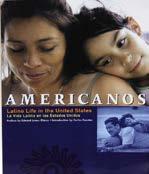
Americans of Latino and Hispanic descent are transforming the face of America. Latinos have made enormous contributions to our national heritage in the arts, politics, business, education, science and religion. Americanos celebrates this remarkable legacy, through the stories of some of the most compelling LatinoAmericans alive today.
A Better Life A Million Miles Away
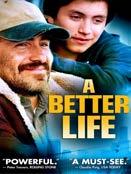
Carlos Galindo (Demián Bichir), a Mexican illegal immigrant and veteran Los Angeles day laborer, has trouble connecting with his son, Luis (José Julián), whose gang-affiliated girlfriend is tempting him to ignore his father's example of clean living. Carlos buys a truck to begin working as a self-employed man and earn more money, but when it is stolen, his hopes for a more affluent life are dashed.

Inspired by the real-life story of NASA flight engineer José Hernández, A Million Miles Away follows him on a decades-long journey, from a rural village in Michoacán, Mexico, to more than 200 miles above the Earth in the International Space Station. With the support of his family, José’s drive & determination culminates in the opportunity to achieve his seemingly impossible goal.
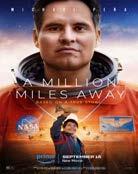
12 13 DIVERSITY, EQUITY, AND INCLUSION DIVERSITY, EQUITY, AND INCLUSION



Sharon Hamilton Partner Laura Meck Partner
“We must use our lives to make the world a better place to live, not just to acquire things. That is what we are put on the earth for.”
Sonata Venture Solutions: Managing Partners Contact Us: 888.626.2404 www.sonataventure.com 14 DIVERSITY, EQUITY, AND INCLUSION
– Dolores Huerta


 Jackson Lee
Jackson Lee



























